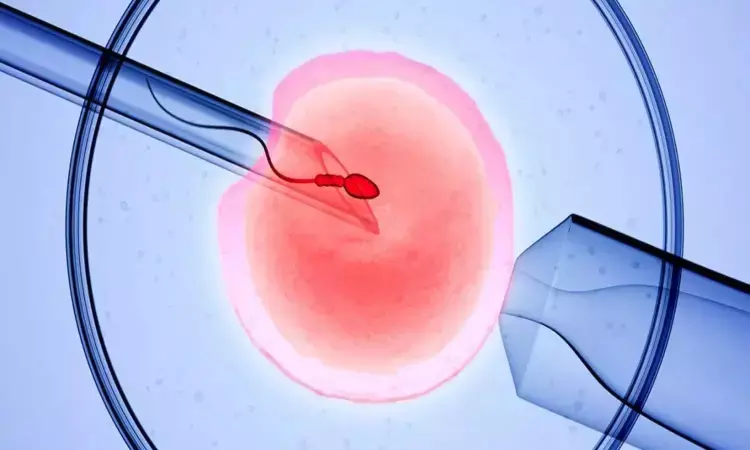- Home
- Medical news & Guidelines
- Anesthesiology
- Cardiology and CTVS
- Critical Care
- Dentistry
- Dermatology
- Diabetes and Endocrinology
- ENT
- Gastroenterology
- Medicine
- Nephrology
- Neurology
- Obstretics-Gynaecology
- Oncology
- Ophthalmology
- Orthopaedics
- Pediatrics-Neonatology
- Psychiatry
- Pulmonology
- Radiology
- Surgery
- Urology
- Laboratory Medicine
- Diet
- Nursing
- Paramedical
- Physiotherapy
- Health news
- Fact Check
- Bone Health Fact Check
- Brain Health Fact Check
- Cancer Related Fact Check
- Child Care Fact Check
- Dental and oral health fact check
- Diabetes and metabolic health fact check
- Diet and Nutrition Fact Check
- Eye and ENT Care Fact Check
- Fitness fact check
- Gut health fact check
- Heart health fact check
- Kidney health fact check
- Medical education fact check
- Men's health fact check
- Respiratory fact check
- Skin and hair care fact check
- Vaccine and Immunization fact check
- Women's health fact check
- AYUSH
- State News
- Andaman and Nicobar Islands
- Andhra Pradesh
- Arunachal Pradesh
- Assam
- Bihar
- Chandigarh
- Chattisgarh
- Dadra and Nagar Haveli
- Daman and Diu
- Delhi
- Goa
- Gujarat
- Haryana
- Himachal Pradesh
- Jammu & Kashmir
- Jharkhand
- Karnataka
- Kerala
- Ladakh
- Lakshadweep
- Madhya Pradesh
- Maharashtra
- Manipur
- Meghalaya
- Mizoram
- Nagaland
- Odisha
- Puducherry
- Punjab
- Rajasthan
- Sikkim
- Tamil Nadu
- Telangana
- Tripura
- Uttar Pradesh
- Uttrakhand
- West Bengal
- Medical Education
- Industry
Time-lapse imaging for embryo selection in IVF may not improve odds of live birth compared with conventional methods: Study

There is no difference in live birth rates between time-lapse imaging and other standard approaches used in in-vitro fertilisation (IVF) for embryo incubation and selection prior to implantation, according to the results of the largest trial of its kind.
The randomised controlled trial looked at IVF outcomes in the UK and Hong Kong. The results, published in The Lancet, provide much-needed evidence that using time-lapse imaging (TLI) does not improve treatment outcomes for someone undergoing fertility treatment.
Time-lapse imaging is a technique used in IVF that takes thousands of time-lapse images of embryos as they grow, creating a continuous view of each embryo as it develops. Some fertility practitioners offer TLI as a pre-implantation screening technique and believe that information that TLI provides – such as rate of development or the number and appearance of cells-can help to select the best embryos for implantation.
In TLI, the embryos are not removed from their incubators, thereby minimising the fluctuations in temperature, humidity, pH, and gas concentrations that might affect development. Standard techniques to assess and select the embryos with the best implantation potential require the embryo to be removed from incubators.
The double-blind trial, led by Dr Priya Bhide from the Women’s Health Research Unit at Queen Mary University of London and funded by Barts Charity and others, recruited over 1,500 participants undergoing IVF at seven centres in the United Kingdom and Hong Kong.
The participants were randomly assigned to one of three trial arms: one group of participants received TLI-based embryo selection, one group received the standard static assessment using undisturbed culture, and the third received conventional assessment using light microscope and standard embryo culture in standard incubators. Baseline demographic and clinical characteristics of participants were similar in the three arms.
Live birth rates for embryos from each arm of the study were 33.7% in the TLI arm, 36.6% in the undisturbed culture arm and 33.0% in the control arm. The clinical pregnancy rates were 42.2% in the TLI arm, 43.4% in the undisturbed culture arm, and 40.9% in the control arm. None of the other secondary outcomes for clinical effectiveness and safety demonstrated significant differences between the arms.
Dr Priya Bhide, Clinical Reader at the Women’s Health Research Unit, Centre for Public Health and Policy in the Wolfson Institute of Population Health, said: “Our trial suggests that TLI does not improve the odds of live birth in women having IVF and ICSI treatments. This shows that the theoretical benefits of advanced technology do not always translate into improved clinical outcomes. This is important information for all stakeholders; patients, healthcare professionals, funders and policymakers.”
Dr David Chan, lab director at the Prince of Wales Hospital, The Chinese University of Hong Kong, said: “Our trial provides evidence to support that TLI machines may not be essential equipment in the IVF lab, especially for IVF laboratories with limited resources. Laboratories may use the findings from this study to re-evaluate how they allocate their budget for equipment. Instead of investing heavily in the TLI machine, they could focus more on lab equipment that has a direct, measurable impact on live birth rates. This approach could help strike a better balance between the overall cost of IVF treatments and patient affordability in resource-limited settings”.
One in six adults are affected by subfertility worldwide. Statistics from the Human Fertilisation and Embryology Authority (HFEA) show over 100,000 IVF treatments took place in the UK during 2022-23.
Reference:
Priya Bhide, David Y L Chan, Doris Lanz, Odai Alqawasmeh, Eleanor Barry, Dominic Baxter, Clinical effectiveness and safety of time-lapse imaging systems for embryo incubation and selection in in-vitro fertilisation treatment (TILT): a multicentre, three-parallel-group, double-blind, randomised controlled trial, The Lancet, https://doi.org/10.1016/S0140-6736(24)00816-X.
Dr Kamal Kant Kohli-MBBS, DTCD- a chest specialist with more than 30 years of practice and a flair for writing clinical articles, Dr Kamal Kant Kohli joined Medical Dialogues as a Chief Editor of Medical News. Besides writing articles, as an editor, he proofreads and verifies all the medical content published on Medical Dialogues including those coming from journals, studies,medical conferences,guidelines etc. Email: drkohli@medicaldialogues.in. Contact no. 011-43720751


